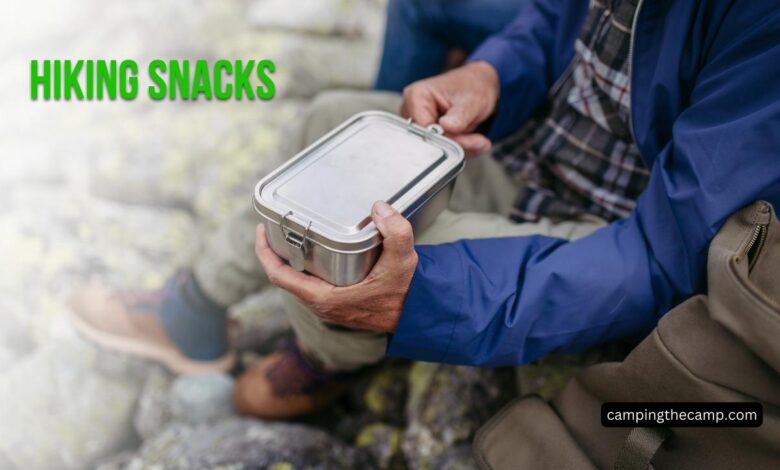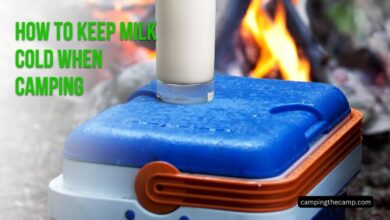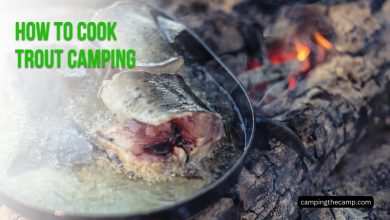Hiking Snacks: Fueling Your Adventure with Healthy

Hiking is a great way to get outdoors, stay active, and enjoy nature. But it’s important to fuel your body properly during a hike to keep your energy levels up and avoid feeling fatigued. That’s where hiking snacks come in. Hiking snacks are portable, easy to eat, and provide the necessary nutrients to keep you going on the trail.
When it comes to hiking snacks, there are many options to choose from. Nut butter and crackers, fresh fruit, jerky, trail mix, meat bars, tuna or chicken packets, and more are all great options. But it’s important to choose snacks that are high in protein, fiber, and healthy fats to keep you feeling full and energized. It’s also important to consider any dietary restrictions or allergies when choosing hiking snacks.
In this article, we’ll explore the importance of hiking snacks, the nutritional requirements for hiking, types of hiking snacks, how to choose hiking snacks, packing tips for hiking snacks, homemade hiking snacks, storing hiking snacks, and potential allergies and dietary restrictions to consider. By the end of this article, you’ll have a better understanding of how to choose the best hiking snacks for your next adventure.
Key Takeaways
- Hiking snacks are essential for keeping your energy levels up on the trail.
- Hiking snacks should be high in protein, fiber, and healthy fats.
- It’s important to consider any dietary restrictions or allergies when choosing hiking snacks.
Importance of Hiking Snacks
Hiking is a physically demanding activity that requires a lot of energy. Hikers need to fuel their bodies with nutritious food to keep themselves going during their trek. That’s where hiking snacks come into play. Hiking snacks provide hikers with the necessary energy and nutrients to keep them going on their journey.
Hiking snacks not only provide energy but also help prevent hunger and fatigue. When hikers get hungry, they may experience a drop in energy levels, which can make it difficult to complete their hike. Hiking snacks help prevent this by providing a steady source of energy throughout the hike.
Moreover, hiking snacks are often lightweight and easy to carry, making them ideal for hikers. They can be packed in a backpack and taken on the go, providing hikers with a quick and easy source of energy whenever they need it.
Additionally, hiking snacks can be a great way to incorporate healthy foods into a hiker’s diet. Many hiking snacks are made with whole foods like nuts, seeds, and dried fruit, which are high in nutrients like protein, fiber, and vitamins. These nutrients help keep hikers healthy and energized throughout their hike.
Overall, hiking snacks are an essential part of any hiker’s gear. They provide the necessary energy and nutrients to keep hikers going and help prevent hunger and fatigue. By incorporating healthy hiking snacks into their diet, hikers can ensure that they stay healthy and energized throughout their journey.
Nutritional Requirements for Hiking
When planning a hike, it’s important to consider the nutritional requirements for the day. Hiking is a physically demanding activity that requires a lot of energy, so it’s important to fuel the body with the right nutrients.
Macronutrients
The three macronutrients to keep in mind when choosing hiking snacks are carbohydrates, fat, and protein. Carbohydrates provide quick energy, while fat and protein provide sustained energy. It’s important to choose snacks that provide a balance of these macronutrients.
Calories
The number of calories needed will vary depending on the length and intensity of the hike, as well as the individual’s body weight and metabolism. As a general rule, hikers should aim to consume around 200-300 calories per hour of hiking.
Hydration
Staying hydrated is also crucial for a successful hike. Hikers should aim to drink at least 2-3 liters of water per day, and more if the weather is hot or dry. Electrolyte-rich drinks can also be beneficial for replenishing lost fluids and minerals.
Nutrient-Dense Snacks
When choosing hiking snacks, it’s important to choose nutrient-dense options that will provide sustained energy. Some good options include:
- Trail mix with nuts, seeds, and dried fruit
- Beef jerky or other high-protein snacks
- Energy bars or granola bars
- Fresh fruit like apples, oranges, or bananas
- Nut butter packets with crackers or rice cakes
By choosing snacks that provide a balance of macronutrients and are nutrient-dense, hikers can ensure that they have the energy and stamina needed to complete their hike.
Types of Hiking Snacks
When planning a hike, it’s important to pack snacks that provide sustained energy and are easy to carry. Here are some popular types of hiking snacks to consider:
Energy Bars
Energy bars are a convenient and portable option for hikers. They come in a variety of flavors and are often packed with nutrients like protein and fiber. However, it’s important to read the labels carefully, as some energy bars can be high in sugar and artificial ingredients.
Dried Fruits
Dried fruits like raisins, apricots, and dates are a great source of natural sugar and carbohydrates. They’re also lightweight and easy to pack. However, it’s important to watch the portion sizes, as dried fruits can be high in calories.
Nuts and Seeds
Nuts and seeds like almonds, cashews, and sunflower seeds are a great source of protein, healthy fats, and fiber. They’re also easy to pack and can be mixed with other snacks like dried fruit or chocolate chips for a tasty trail mix.
Jerky
Jerky made from beef, turkey, or even tofu is a great source of protein and can be a satisfying snack on the trail. However, it’s important to choose brands that use high-quality ingredients and avoid jerky that’s high in sodium or preservatives.
When choosing hiking snacks, it’s important to consider factors like nutrition, portability, and taste. By packing a variety of snacks, hikers can stay fueled and energized throughout their journey.
How to Choose Hiking Snacks
Choosing the right hiking snacks is essential to ensure that you have enough energy to complete your trek. Here are some tips to help you choose the best hiking snacks:
Consider the Duration and Difficulty of Your Hike
The duration and difficulty of your hike will determine the type of snacks you should bring. For longer hikes, you will need snacks that provide slow-burning energy, such as carbohydrates, fiber, and protein. Quick-energy snacks, such as energy bars and gels, are best for shorter hikes.
Opt for Nutrient-Dense Snacks
When choosing hiking snacks, opt for nutrient-dense options that provide a good balance of carbohydrates, protein, and healthy fats. Nuts, seeds, and dried fruit are excellent options that provide sustained energy and are easy to carry.
Pack Lightweight Snacks
When hiking, every ounce counts. Pack lightweight snacks that are easy to carry and won’t weigh you down. Avoid snacks that are bulky or take up too much space in your backpack.
Avoid Greasy or Processed Snacks
Greasy or overly-processed snacks, such as potato chips and candy bars, can slow you down or cause a mid-hike crash. Instead, choose snacks that are natural and minimally processed.
Stay Hydrated
Don’t forget to pack plenty of water and electrolyte drinks to stay hydrated during your hike. Dehydration can lead to fatigue and cramping, so it’s essential to drink plenty of fluids throughout your trek.
By following these tips, you can choose the best hiking snacks to keep you fueled and energized during your next outdoor adventure.
Packing Tips for Hiking Snacks
When it comes to hiking, packing the right snacks is essential. Here are some tips to help you pack the perfect hiking snacks:
1. Choose Nutrient-Dense Snacks
Hiking requires a lot of energy, so it’s important to choose snacks that are nutrient-dense. Look for snacks that are high in protein, healthy fats, and complex carbohydrates. Some great options include nuts, seeds, jerky, dried fruit, and energy bars.
2. Consider Portability
When packing snacks for a hike, it’s important to consider their portability. Choose snacks that won’t get crushed or squished in your backpack, and that won’t take up too much space. Some great portable snack options include trail mix, energy balls, and granola bars.
3. Pack for the Weather
The weather can have a big impact on the types of snacks you pack for a hike. If it’s hot outside, you’ll want to avoid snacks that will melt or spoil, such as chocolate or cheese. Instead, opt for snacks that can withstand the heat, such as dried fruit or beef jerky. If it’s cold outside, consider packing hot drinks or soups in a thermos to help keep you warm.
4. Don’t Forget Hydration
Staying hydrated is just as important as packing the right snacks. Make sure to pack plenty of water and electrolyte-rich drinks, such as sports drinks or coconut water. You can also pack fruits and vegetables with high water content, such as watermelon or cucumber, to help keep you hydrated.
5. Pack in Portions
To avoid overeating or running out of snacks, it’s a good idea to pack your snacks in portions. This will also help you keep track of how much you’re eating and prevent waste. Use resealable bags or containers to pack your snacks in portions.
By following these tips, you can ensure that you have the right snacks to keep you fueled and energized on your next hiking adventure.
Homemade Hiking Snacks
When it comes to hiking, having the right snacks can make all the difference. Homemade hiking snacks are a great way to ensure that you have the energy you need to tackle the trail. Here are some delicious and nutritious homemade hiking snacks to try out on your next adventure.
Trail Mix Recipes
Trail mix is a classic hiking snack that is easy to make at home. Here are a few trail mix recipes to try:
- Don’t Knock it ‘Til Ya Try it Trail Mix: This nutritious concoction is a twist on the classic trail mix. It includes ingredients like pumpkin seeds, dried cranberries, and dark chocolate chips. Mix it up and store it in an airtight container for a quick and easy snack on the go.
- Sweet and Salty Trail Mix: This trail mix recipe combines sweet and salty flavors for a satisfying snack. It includes ingredients like pretzels, almonds, dried apricots, and chocolate chips. Mix it up and store it in a resealable bag for easy snacking.
DIY Energy Bars
Energy bars are another great homemade hiking snack. Here are a few DIY energy bar recipes to try:
- Peanut Butter Energy Bars: These energy bars are packed with protein and healthy fats to keep you fueled on the trail. They are made with ingredients like rolled oats, peanut butter, honey, and chia seeds. Make a batch and store them in the fridge for a quick and easy snack.
- No-Bake Energy Bites: These energy bites are easy to make and perfect for a quick snack on the go. They are made with ingredients like rolled oats, peanut butter, honey, and chocolate chips. Roll them into bite-sized balls and store them in an airtight container in the fridge.
Homemade hiking snacks are a great way to ensure that you have the energy you need to tackle the trail. Try out these trail mix and energy bar recipes on your next hike for a delicious and nutritious snack that will keep you going.
Storing Hiking Snacks
When it comes to hiking snacks, proper storage is essential. Hikers need to ensure that their food stays fresh, dry, and easily accessible throughout their journey. Here are some tips on how to store hiking snacks:
Use Airtight Containers
Airtight containers are the best way to keep hiking snacks fresh and dry. These containers prevent moisture and air from seeping in, which can cause snacks to spoil quickly. Plastic containers with tight-fitting lids are a popular choice for hikers. They are lightweight, durable, and easy to pack.
Separate Snacks by Type
Separating snacks by type can make it easier to find what you need quickly. For example, you could use separate containers for nuts, dried fruit, and energy bars. Alternatively, you could use ziplock bags to keep different types of snacks separate. This method allows hikers to grab what they need without having to rummage through their entire pack.
Pack Snacks in Small Portions
Packing snacks in small portions can help hikers to manage their food intake and reduce waste. It also makes it easier to share snacks with other hikers. Hikers can use small ziplock bags or reusable snack bags to portion out their snacks.
Keep Snacks Easily Accessible
Hikers should keep their snacks easily accessible, so they can grab them quickly without having to stop and unpack their entire bag. Snacks that are frequently eaten, such as energy bars or trail mix, should be stored in pockets or pouches on the outside of the backpack. This way, hikers can easily access them while on the move.
By following these tips, hikers can ensure that their snacks stay fresh, dry, and easily accessible throughout their journey. Proper storage can make all the difference in keeping hikers fueled and energized on the trail.



